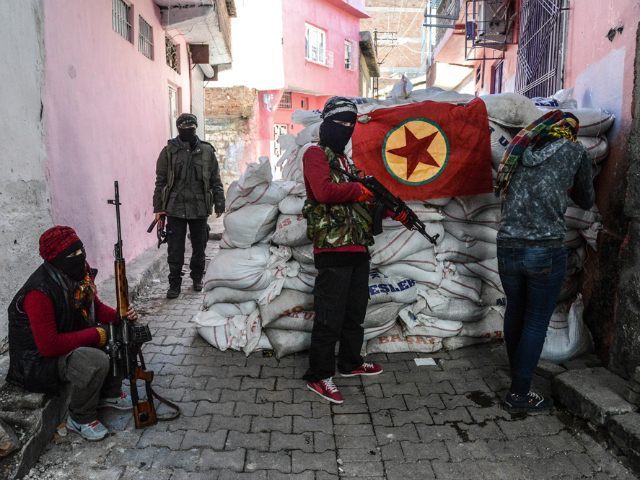While nominally working against a common enemy—the Islamic State (ISIS)—the Kurdistan Workers’ Party (PKK), a U.S.-designated terrorist group, has occupied a number of Christian Assyrian villages in Iraq. The Marxist group has also invaded a home owned by a commander of the anti-ISIS Christian militia Dwekh Nawsha.
The Assyrian International News Agency (AINA) is reporting that at least three Christian villages are now under full control of the PKK, describing the situation as an “occupation.” PKK fighters have been in the Iraqi towns since late November, in northern Iraq near the border with Turkey. The PKK is highly active in Turkey, where the government has launched an extensive operation to eradicate it from the nation completely.
The PKK has claimed it is in the villages as a humanitarian mission, and residents tell AINA they have heard rumors the group will be opening a hospital. They have occupied several homes, however, and—most alarmingly to residents there—a home near a school serving 177 students. The home belongs to Emmanuel Khoshaba Youkhana, the head of Dwekh Nawsha, according to the report.
Residents fear that having armed PKK militias patrolling near the school may jeopardize the safety of the students, but protests from the mayor were “dismissed,” according to the report. Another civilian allegedly asked the PKK to clarify why they had occupied the Christian town and was answered with: “you [Assyrians] have the opportunity to leave the country, why are you staying here?”
Youkhana tells AINA that he expects the PKK will remain in control of the towns through the winter, now that the seasons are changing and the harsh winter conditions begin to appear. “It is not right for the PKK to occupy our villages and use Assyrians as human shields… It is the duty of the Iraqi central government and the Kurdish regional government to safeguard its citizens,” he told AINA.
Youkhana’s group, Dwekh Nawsha, are engaged in military operations against the Islamic State terrorist group, which has forced Christians in occupied cities—including Mosul, the second-largest city in Iraq—to accept death, the jizya submission tax, or exile. The Christian population of Mosul dwindled from an estimated 10,000 before the Islamic State’s arrival to zero. Dwekh Nawsha has attracted a number of Western Christians, including former American soldiers, to its cause.
Speaking to Breitbart News exclusively in November, Youkhana asserted that America was the only nation with which Dwekh Nawsha felt comfortable collaborating. “The Assyrians want to be enduring partners with the United States… We need the support from USA,” he said, adding that other foreign governments involved in the struggle against the Islamic State only provide aid “under conditions.” Without aid, “We are losing not only the Assyrian people, we are losing the Christianity.”
In a separate Breitbart News interview, Retired U.S. Army Lt. Col. Sargis Sangari, who advises Dwekh Nawsha, warned that “all we’re saying is we’re done. We don’t have equipment. We don’t have the weapons. We don’t have the training.” He urged American officials to consider Assyrian militias as potential allies: “As much as you’re giving money to all these individuals who are killing each other, why don’t you try to give it to the Assyrians?”
Youkhana clarified to Breitbart News that, on the front lines, Dwekh Nawsha cooperates with the Peshmerga, the militia associated with the Kurdistan Regional Government of Iraq (KRG). The KRG has long had a friendly relationship with the Assyrian community of northern Iraq. Other members of Dwekh Nawsha have previously stated their support for a free Kurdistan run by the KRG government, where they may be able to establish an autonomous community. “We would like be part of Kurdistan as an independent region. In this area it’s better to live with Kurds. Because the experience we had with the Arabs was not pretty,” Albert Kisso, a Dwekh Nawsha commander, said in July.
The KRG has repeatedly urged the PKK to leave Iraq, deeming it a regional presence consisting mostly of Turks and arguing that a KRG presence in the Turkish city of Diyarbakir, for example, would be as welcome to the PKK as the PKK is near Erbil, the KRG capital. The PKK supports the unification of all Kurdish communities under a Marxist banner, and PKK leader Abdullah Ocalan has reached out to make peace with the KRG in the past. Ocalan has also reached out to the Assyrian community, urging them to join the struggle against capitalist oppression.

COMMENTS
Please let us know if you're having issues with commenting.